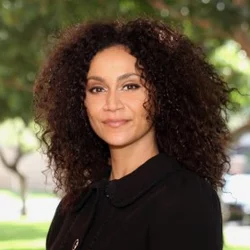
Cleopatra Abdou-Kamperveen, PhD
Scientist
About
Cleopatra M. Abdou-Kamperveen, PhD, is an Assistant Professor of Gerontology and of Psychology in The Leonard Davis School of Gerontology, University of Southern California. She received a Master of Arts degree and a Doctorate of Philosophy from the UCLA Department of Psychology, and was a Robert Wood Johnson Foundation Health and Society Scholar at the University of Michigan (UM), Ann Arbor, MI.
Dr. Abdou-Kamperveen’s interdisciplinary program integrates psychology, human development and aging, public health, and medicine to better understand lifespan and intergenerational health disparities, with special emphasis on women’s health. Dr. Abdou developed the Culture and Social Identity Health Theory and the related conceptual framework, Aging Before Birth and Beyond. She was the first to empirically demonstrate the phenomenon of healthcare stereotype threat, spawning a new area of research. Dr. Abdou’s nearly two-dozen articles have been published in psychology, public health, medicine, sociology, and gerontology journals. Her research has been funded by several arms of the National Institutes of Health, including the National Institute on Aging, the National Institute of Minority Health and Health Disparities, and the National Institute of Mental Health, as well as by the National Science Foundation, the U.S. Department of Agriculture, the Robert Wood Johnson Foundation, the Woodrow Wilson Foundation, and the Michigan Center for Integrative Approaches to Health Disparities. She is also a selected member of the Fulbright Specialists Roster.
Cohort
2015-16
Projects
- “Psychosocial mediators and moderators of healthcare stereotype threat in older African Americans and Latinos.” Dr. Abdou-Kamperveen’s RCMAR/CHIME- and UCLA CTSI-funded primary data-collection and secondary-data analysis project seeks to understand the contribution of healthcare stereotype threat to health disparities among aging African Americans and Latinos by examining an overlooked psychosocial barrier to care among aging minorities, namely healthcare stereotype threat, and how it can be ameliorated.